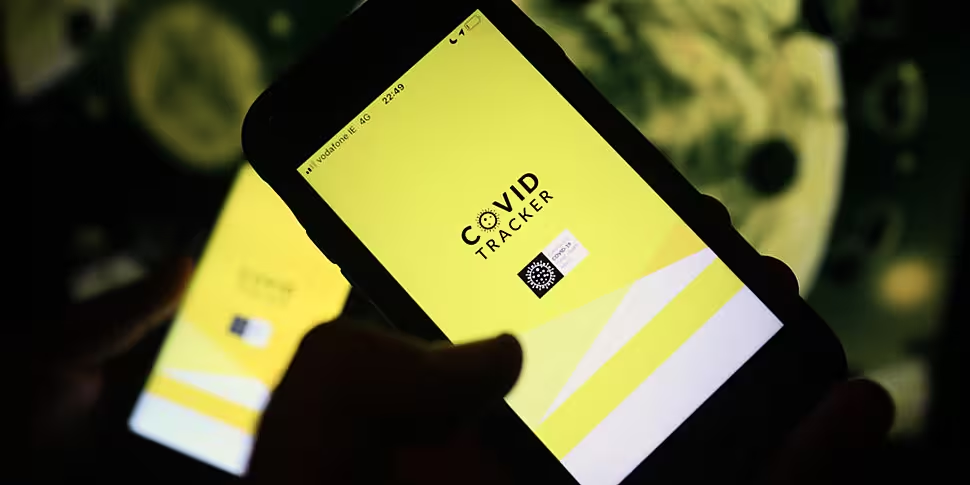The team behind Ireland’s COVID Tracker app considered gathering information based on GPS, telecoms or social media data before settling upon the Bluetooth model.
Speaking exclusively to Newstalk, Gar MacCríosta - Product Manager for the COVID Tracker app at the HSE - said the app went through several iterations before the final product was ready for launch.
“We were trying to figure out how do we use technology and apply it to help with contact tracing. At that point in time, we were looking at using what data could we use that would tell us who was where, and that could be GPS data, it could be telco data, it could be social media data,” explained MacCríosta.
“We were scouring the globe to try and figure out what other people were doing. I think in the hundred days we spent building the app, we built it three times.”
The app, which has had some 1,728,342 downloads since its launch, was built by Irish company Nearform, using technology made available by Apple and Google. MacCríosta explained that the team behind the Irish app had reservations about using the Apple and Google model.
“When we went to Google and Apple, it had a couple of consequences," he observed. "One was we were going to have to rip out what we were doing. But the other was this whole debate raging about centralised versus decentralised.
"As soon as we committed to going with Apple and Google, we were actually taking public health on a journey that it had never been on before.”
Using this model means the HSE does not have a full index of patients and their contacts at their fingertips. They are unable to do hotspot analysis and several other functions.
“And we had serious reservations, as we were looking at this in the first place as to whether this would work or do enough for us in order to go down that road," MacCríosta noted. "I think on the privacy side of it, we had all the same concerns. So, we had to make sure that we were comfortable with how this would work.”
Consent
The app has been designed to capture as little information as possible about the individual using it. Users that download the app have the option to insert personal information, including their phone number if they wish, but it is not a requirement.
Much thought went into the data protection aspect of the app.
“We had multiple iterations of this as we went through it as we were trying to figure out, under what legal basis do we collect the data," MacCríosta said. "We collected under consent, which is the weakest form, which gives the people using the app the most control. You can withdraw consent, you can say ‘good luck, I'm done’. That's exactly what we wanted.
"We wanted it to be voluntary. It's not something that we're demanding people do.”
Battery issue
More than 1 million people downloaded the app within 48 hours of the launch. It hit a bump in the road, however, on August 9th when Android users reported significant battery drain as a result of the application.
MacCríosta explained that the team discovered the issue and worked to resolve it.
“We do know what went wrong and there was a couple of different parts to it," he said. "One was a malformed identifier. It didn't come from a phone; it was part of an operational readiness test. It was passed in. And it basically got bundled up on the Friday night distributed out to phones.
"What then happened was when it got passed into the exposure notification system, it ended up getting itself into a loop. And that was it was trying to retry matching this over and over and over again, and it just got stuck.
"We found out about it on Saturday evening. By Sunday, about seven, we had a fix that was being pushed out.
"But it's a fix to Google Play Services, so that rolls out. We made a number of different changes to our back end to make sure that this can't happen again.”
Some 83,000 people uninstalled the app as a result of that issue on Android devices. While they cannot tell how many of those 83,000 have re-installed the app, MacCríosta is confident people will come back.
“I can only apologize to the people who suffered from this," he said. "But we're doing our best to try and make sure and recover this and trying to get it back to a point where and to build up to rebuild that trust if we've lost that trust.
"It's regrettable because I think if you initially took the step to download the app, it's terrible that we that we've lost you. So, we'd love to get those people back.”









